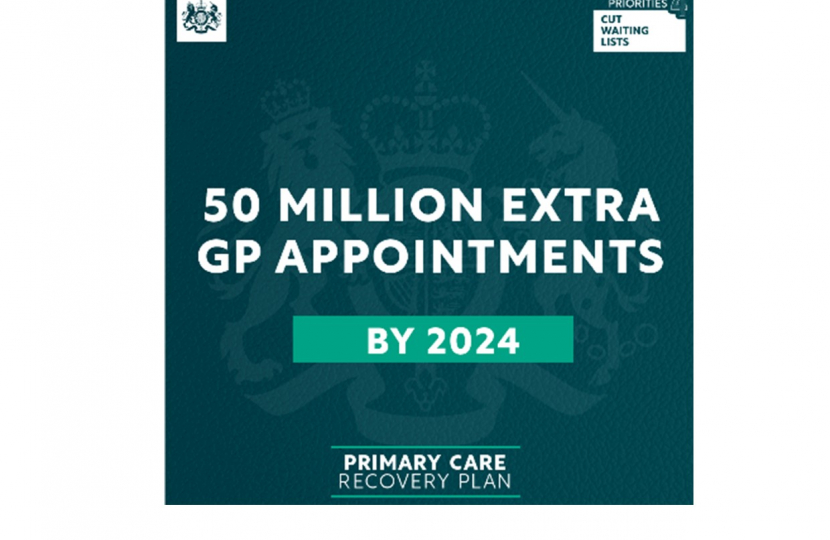This week the Government launched its Primary Care Recovery Plan, making it easier for patients to access GP and to access treatments for common conditions via pharmacies.
GPs are already working incredibly hard, with 10% more GP appointments happening each month compared to pre-covid, but pressures upon primary care appointments locally have had further impacts on other services with many who cannot obtain a GP appointment attending the Urgent Treatment Centre at Queen’s Hospital. This has contributed, in part, to the delays that patients have experienced at Queen’s Hospital which Julia Lopez MP has been working with local stakeholders to improve.
Under the plan, GP practices in England will benefit from £240m, equivalent to £35,000 per practice, of investment in new technologies to make it easier for patients to contact their GPs directly. This investment will help remove the 8am rush for appointments while making it easier to get a response on the same day.
Julia Lopez MP had previously made representations to Government, on behalf of constituents and local pharmacies, about the importance of community pharmacies in accessing treatments. Last September, a £100 million was invested to help pharmacists to expand clinical services, including contraception management and for minor illness consultations. The Primary Care Recovery Plan takes this principal further with the investment of a further £645 million over two years to enable pharmacists to treat common conditions like rashes, ear ache, sore throats, skin and urinary infections helping to free up more appointments.
The measures announced in the Primary Care Recovery Plan are expected to provide an additional 15 million GP appointments across England within the next two years. The Government is also seeking to build further capacity within the primary care sector, recruiting an additional 26,000 clinicians to provide 50 million extra appointments by March 2024.
Expected to open within Spring 2024, the St. George’s Health and Wellbeing Hub will significantly boost local capacity by providing primary care support to 5,000 extra patients with a frailty clinic expected to prevent 3,000 hospital admissions of elderly patients. All of these measures will help ease pressures upon Queen’s Hospital and allow patients to receive the right care at the right place.




